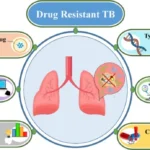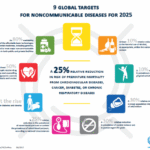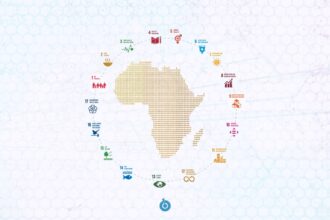Sustainable Development Goal (SDG) 3, “Good Health and Well-being,” stands as a cornerstone of the entire 2030 Agenda for Sustainable Development. Recognizing that health is both a prerequisite for and an outcome of sustainable development, SDG 3 aims to ensure healthy lives and promote well-being for all at all ages. Achieving this goal is not merely about the absence of disease; it encompasses a state of complete physical, mental, and social well-being. Progress in health is inextricably linked to progress across other SDGs, including poverty reduction, education, gender equality, and economic growth. Therefore, realizing the ambitious targets of SDG 3 is fundamental to building a more just, equitable, and sustainable world for everyone.
The scope of SDG 3 is broad and ambitious, encompassing a wide range of health priorities. It calls for ending the epidemics of AIDS, tuberculosis, malaria, and neglected tropical diseases; combating hepatitis, water-borne diseases, and other communicable diseases; and reducing premature mortality from noncommunicable diseases (NCDs) such as cardiovascular diseases, cancer, diabetes, and chronic respiratory diseases. The goal also emphasizes the importance of promoting mental health and well-being, preventing and treating substance abuse, and reducing road traffic injuries, deaths, and air pollution-related illnesses. Furthermore, SDG 3 aims to improve maternal and child health, ensure universal access to sexual and reproductive healthcare services, and achieve universal health coverage, ensuring that all people have access to quality healthcare services without facing financial hardship.
Significant progress has been made in several areas of global health in recent decades. Child mortality rates have declined, life expectancy has increased, and advancements in the prevention and treatment of infectious diseases have saved millions of lives. However, substantial challenges remain, particularly in low- and middle-income countries. Inequalities in health outcomes persist across and within countries, with the poorest and most marginalized populations often bearing the greatest burden of disease. Weak healthcare systems, lack of access to essential medicines and technologies, and insufficient health financing continue to hinder progress towards achieving SDG 3.
Addressing the multifaceted challenges of SDG 3 requires a comprehensive and integrated approach. Strengthening healthcare systems is paramount, including investing in infrastructure, training healthcare workers, and ensuring the availability of essential medicines and technologies. Universal health coverage is a key target, aiming to provide equitable access to quality healthcare services for all, regardless of their socioeconomic status. This requires innovative financing mechanisms and a commitment to reducing out-of-pocket health expenditures.
Preventing disease is equally crucial. Addressing the social determinants of health, such as poverty, inequality, education, and environmental factors, is essential for creating healthier societies. Public health interventions that promote healthy lifestyles, such as encouraging physical activity, healthy diets, and the avoidance of tobacco and harmful alcohol use, play a vital role in preventing NCDs. Strengthening surveillance systems and implementing effective prevention and control measures are also critical for tackling infectious disease epidemics.
Innovation and technology offer significant opportunities to accelerate progress towards SDG 3. Mobile health (mHealth) initiatives can improve access to information and healthcare services, particularly in remote areas. Telemedicine can connect patients with specialists and improve the quality of care. Data analytics and digital health platforms can enhance disease surveillance and inform public health decision-making.
Achieving SDG 3 is not solely the responsibility of the health sector. It requires multisectoral collaboration, involving partnerships between governments, civil society organizations, the private sector, and individuals. Education plays a vital role in promoting health literacy and empowering individuals to make informed decisions about their health. Sustainable economic development can create jobs and improve living standards, contributing to better health outcomes. Environmental policies that reduce pollution and promote healthy environments are also essential for preventing disease.
Ultimately, achieving good health and well-being for all is a fundamental human right and a crucial prerequisite for sustainable development. By prioritizing SDG 3 and working collaboratively across sectors, the global community can create a healthier, more equitable, and prosperous future for generations to come. The journey towards universal health and well-being demands sustained commitment, innovation, and a focus on leaving no one behind.
















